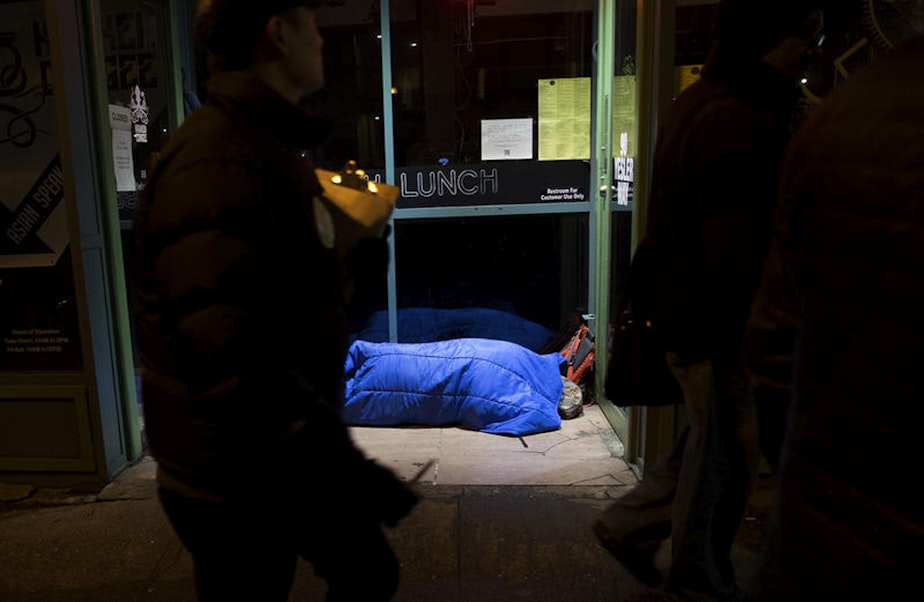Microsoft president on housing pledge: 'When you create jobs you've got to create more housing'

Microsoft is making the largest gift in its history: A $500 million pledge to address homelessness and affordable housing concerns in Puget Sound region.
Microsoft President Brad Smith spoke with KUOW’s Angela King about the effort.
Angela King: The big question a lot of people may be asking is why do this now.
Brad Smith: The housing situation in the Puget Sound region has reached a point where it's appropriate to use the word 'crisis.'
We put a team of data scientists to work. We partnered with Zillow.
We concluded that the region has a gap of about 300,000 units that would be affordable for people in low- and middle-income brackets.
And the lack of available housing is forcing many people -- the schoolteachers, the nurses, the first responders, many others who work at companies — to endure longer and longer commutes. And we have even far worse problems for people who are homeless.
It really is a time when we need to come together and act.
How does a lack of affordable housing impact Microsoft, and will this solve any problems for you?
I think it affects everybody. It affects every business. You can't be a healthy business unless you're part of a healthy community.
Everybody wants to be able to send their kids to schools where the teachers are real fresh for the morning, not having sat in a car for two hours before they walk through the front door of the building.
I think when you take people who play vital roles in a community and you force them to live in another community it really saps the vitality for all of us.
Our employees feel this. I think everybody who is listening to this feels it.
Sponsored
Seattle has been booming. We have two of the world's most valuable companies here, but I'm sure you're aware of the backlash -- people blaming tech booms for Seattle's affordability problem. Do you think that's fair and how much of the blame do you think you actually deserve?
I think that we can either solve the problem or argue about it, and mostly we're focused on solving it. The truth is this is a problem that requires all of us to play our part.
I think that in some ways people would look at this region and say this is a high-class problem to have, you know, all of this job growth. A lot of great jobs have been added here, but it just goes to show that when you create jobs, you've got to create more housing for people to live in — and you can debate who's responsible for that.
The truth is we need to go solve this. And it's going to take all of us. It's going to take capital like the money that we're putting into this.
It's really going to take a lot of focused leadership from mayors and city councils and the county and the state. There are a number of public policy changes that are needed, and as important as the money that we're announcing today is a statement being signed by nine mayors of the smaller cities around Seattle — where the problem is even more acute than in Seattle itself — to make precisely the kinds of changes that we're going to need.





